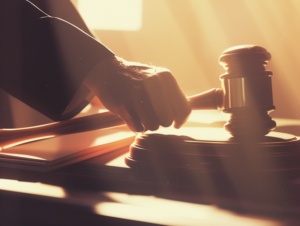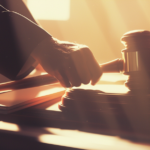A federal judge in Delaware has dismissed one claim in a biometric privacy lawsuit against Amazon Web Services for the second time. The dismissed claim alleged that Amazon unlawfully shared biometric data or identifiers with external parties without obtaining permission, violating the Illinois Biometric Information Privacy Act (BIPA).

Judge Stephanos Bibas had previously rejected this claim after concluding that the information allegedly shared by Amazon was not sufficient to support the allegations. The plaintiffs failed to rectify the issues after the initial dismissal, leading to the second dismissal of this particular claim.
The judge also instructed the plaintiffs’ attorneys to justify why he should not determine that they fabricated a “nonsensical” and “frivolous” challenge regarding the court’s authority over the claim. The demand indicates that the judge suspects the attorneys may have acted in bad faith by presenting an argument they knew or should have known was without merit, possibly in an attempt to prolong the litigation or avoid addressing the fundamental weaknesses in their case.
The dismissal is part of a larger lawsuit against Amazon regarding its alleged collection and use of voice biometrics without proper consent. While this specific claim was dismissed, other aspects of the lawsuit are still ongoing. For instance, a claim alleging Amazon extracts voiceprints and uses them to authenticate callers without informed consent is still proceeding.
The judge had previously dismissed three counts claiming Amazon unlawfully retains, shares, or profits from the collected data.
The case centers on whether Amazon Web Services failed to gather the required informed consent when collecting voice biometrics from callers to financial institutions for which it was providing call center services.
The ongoing legal proceedings highlight the complexities surrounding biometric data privacy and the challenges companies face in complying with laws like BIPA. Other major tech companies including Facebook, Google, TikTok, and Snapchat have all agreed to pay substantial settlements for alleged BIPA violations, ranging from $35 million to $650 million.
In August, Illinois Governor J.B. Pritzker signed Senate Bill 2979 into law, marking a significant change for BIPA. Most notably, the amendment limits the number of violations an individual can claim, now counting multiple collections of the same person’s biometric data using the same method as a single violation. The change is expected to substantially reduce potential damages in BIPA lawsuits.
Source: Bloomberg Law
–
October 18, 2024 – by the ID Tech Editorial Team






Follow Us